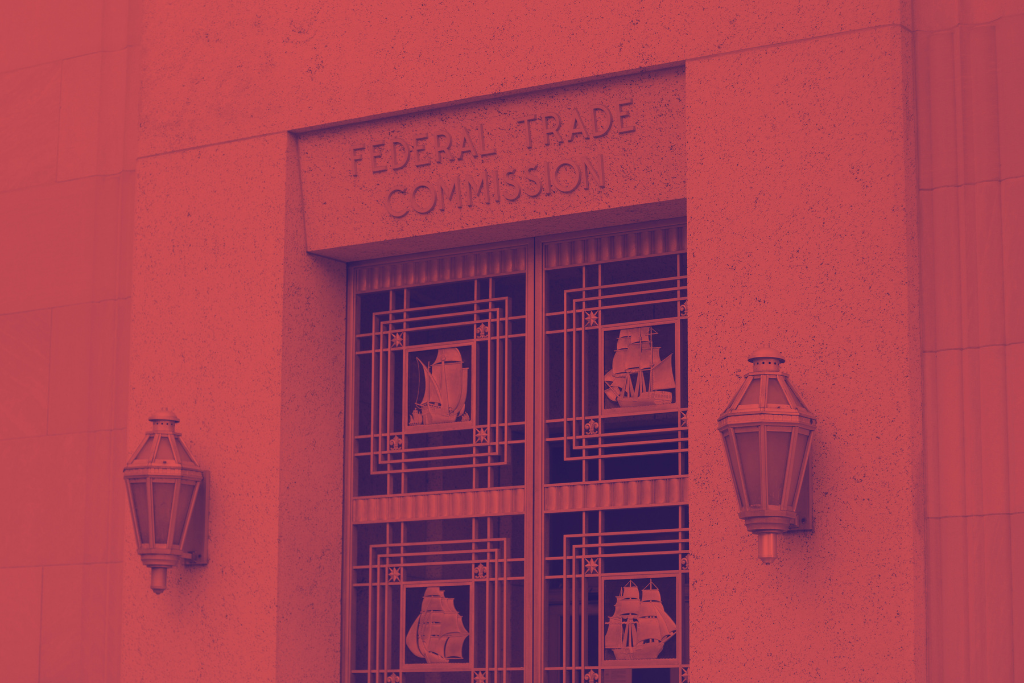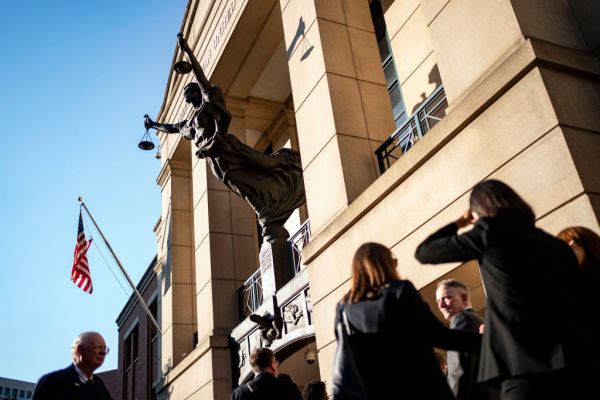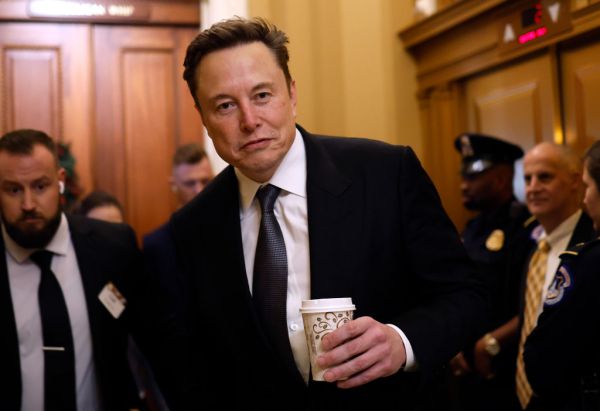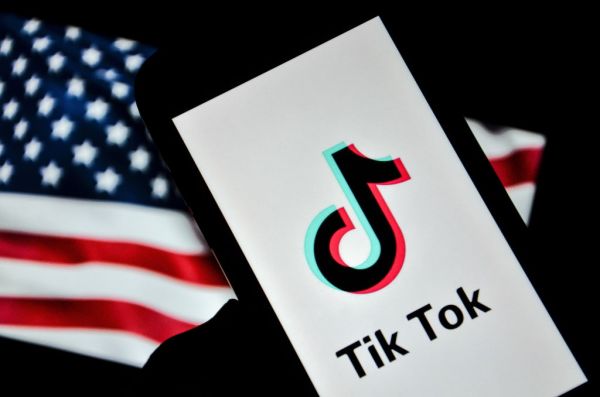Happy Monday! President-elect Donald Trump said Friday that “The Republican Party will use its best efforts to eliminate Daylight Saving Time.”
We don’t really know what eliminating DST means but we support whatever decision results in more people reading this newsletter!
Quick Hits: Today’s Top Stories
- The Israel Defense Forces conducted 75 airstrikes across Syria on Saturday night, continuing an effort to deny supplies of weapons and other military equipment to rebel groups taking control of the country. Abu Mohammad al-Jolani, the leader of Hayat Tahrir al-Sham (HTS), the Islamist group leading the rebel coalition now in power, said Saturday that Israel had “no more excuses” to conduct strikes in Syria, claiming his group did not seek escalation. Meanwhile, Secretary of State Antony Blinken confirmed over the weekend for the first time that U.S. officials had been in direct contact with HTS, which remains a State Department-designated foreign terrorist organization. “Our message to the Syrian people is this,” Blinken said. “We want them to succeed and we’re prepared to help them do so.”
- South Korea’s National Assembly voted 204 to 85 on Saturday to impeach President Yoon Suk Yeol over his attempt earlier this month to impose martial law on the country in response to persistent conflicts with the legislature. Yoon is now suspended from presidential duties, with Prime Minister Han Duck-soo taking over as acting president. The country’s Constitutional Court will now rule on whether to oust Yoon or overturn the impeachment, but a decision could take up to six months. “Although I am pausing for now, my journey for the future with the people over the past two-and-a-half years shouldn’t stop,” Yoon said in public remarks on Saturday.
- After months of negotiation, the United States and China on Friday signed an updated science and technology agreement, modifying and extending the U.S.-China Science and Technology Cooperation Agreement (STA), first adopted in 1979, for another five years. The agreement allows for scientific research collaboration, but it does not extend to critical and emerging technology sectors like artificial intelligence and semiconductor technology. “The amended agreement ensures that any federal science and technology cooperation with the [People’s Republic of China] under the STA benefits the United States and minimizes risks to U.S. national security,” the State Department said in a statement.
- Mayotte—a French island territory between Mozambique and Madagascar—was struck by Tropical Cyclone Chido on Saturday, resulting in potentially hundreds of deaths, according to local officials. Eleven people have been confirmed dead, and 25o more injured, although that number is expected to rise dramatically in the coming days. Chido, which had wind speeds reaching 115 miles per hour on Sunday morning, made landfall on Sunday in Northern Mozambique, where it is expected to slow substantially.
- New York Gov. Kathy Hochul said Friday she had begun an investigation with federal agencies into a rash of unexplained drone sightings across New York and New Jersey. The source of the sightings, which have been occurring for several weeks, has yet to be determined, although a joint statement from the FBI and the Department of Homeland Security said that the drones do not pose “a national security or public safety threat or have a foreign nexus.” On Thursday, the White House said that a review of the sightings concluded that many were lawfully operated manned aircraft.
- McKinsey & Company, the global consulting giant, on Friday settled a Justice Department investigation into its work for opioid maker Purdue Pharma, agreeing to pay $650 million. Federal officials, in a Friday presentation announcing the settlement, stated that McKinsey “knew the risks and dangers associated with OxyContin,” knew that Purdue employees had pled guilty to federal crimes relating to OxyContin sales, and still chose to recommend that Purdue “turbocharge” sales of the painkiller. Former McKinsey senior partner Martin Elling will also plead guilty to felony obstruction of justice for deleting records related to Purdue from his McKinsey laptop and could face up to a 12 months in prison.
- The D.C. District Court of Appeals on Friday rejected TikTok’s request for a temporary pause on enforcing a law that is set to ban the app from operating in the United States in mid-January. “The petitioners rely upon their claims under the First Amendment to justify preliminarily enjoining the act,” the court noted in its order. “As to those claims, this court has already unanimously concluded the act satisfies the requirements of the First Amendment under heightened scrutiny.” TikTok said it plans to appeal the case to the Supreme Court, but it’s unclear whether the court will agree to hear the case.
- President-elect Donald Trump announced Saturday that Richard Grenell, the former U.S. Ambassador to Germany and acting Director of National Intelligence during Trump’s first administration, would be named as Trump’s “envoy for special missions.” Trump wrote that Grenell would “work in some of the hottest spots around the world, including Venezuela and North Korea.” On Sunday, Trump named Devin Nunes, the CEO of Truth Social and a former Republican congressman from California, to be chairman of the President’s Intelligence Advisory Board, an independent group in the executive branch that advises the president on the effectiveness of intelligence agencies.
- ABC News agreed on Sunday to settle a defamation lawsuit brought by President-elect Donald Trump, paying him $15 million. The lawsuit was brought after anchor George Stephanopoulos said on-air in March that Trump had been found “liable for rape,” in reference to Trump’s 2023 civil conviction in New York for “sexual abuse,” which has a distinct definition under New York law. In addition to the $15 million payment, which will be given to Trump’s presidential library, the settlement requires ABC News to include an editorial note on the original interview expressing regret for the statements and pay an additional $1 million toward Trump’s legal fees.
- Former House Speaker Nancy Pelosi underwent successful hip replacement surgery in Germany on Saturday following an injury she sustained during an official engagement on Friday in Luxembourg. Spokesman Ian Krager said that Pelosi was “well on the mend.”
Antitrust Horseshoe

“A lot of my Republican colleagues look at [Federal Trade Commission Chair] Lina Khan … and they say, ‘Well, Lina Khan is sort of engaged in some sort of fundamentally evil thing,” Sen. J.D. Vance said at a tech policy conference in February. “I look at Lina Khan as one of the few people in the Biden administration I actually think is doing a pretty good job.”
Khan also spoke at the same conference and praised Vance as a leader on competition policy.
Khan will be replaced as FTC chair when President-elect Donald Trump returns to the White House in January, but at least some of her approach to antitrust policy could prove more enduring, sustained by populists like Vance who will have an outsized role in the second Trump administration. Indeed, Trump’s recent selections for top antitrust enforcement roles, including Andrew Ferguson, Khan’s replacement, signal a loosening of the leash on mergers and acquisitions, but they also reflect the Republican Party’s evolution on competition policy, particularly its souring on Big Tech.
What’s been happening in the world of antitrust? Under the leadership of Khan, Assistant Attorney General for Antitrust Jonathan Kanter, and (now former) White House competition czar Tim Wu, the Biden administration pursued a remaking of competition policy in the image of the much more aggressive “hipster antitrust” or Neo-Brandeisian school of thought. Progressive antitrust advocates were enthused with the picks—they had the coffee mugs to prove it—and some of them landed senior positions at enforcement agencies.
This shift in antitrust enforcement away from the legal consensus that emerged in the 1970s and ’80s—known as the Chicago School—that prioritized lower prices and “consumer welfare” toward what Wu described as a “New Deal-style antimonopoly campaign” that sees market concentration as inherently harmful to competition and economic equality was nearly a decade in the making.
The shift in approach was quickly evident once Khan and Kanter were in their respective positions. The agency secured a win for the “hipster antitrust” movement just last week, when judges blocked a proposed supermarket merger between Kroger and Albertsons. The $25 billion deal would have been the largest grocer merger in U.S. history, but Albertsons terminated the agreement after a federal judge ruled in favor of the FTC’s challenge, which claimed that, if the companies were allowed to combine, the new entity would raise prices and degrade employees’ collective bargaining power.
That said, plenty of Khan’s efforts at the FTC have been pared back or knocked down,
The Khan-Kanter era witnessed some high-profile losses, including the FTC’s failed effort to block Microsoft’s $70 billion acquisition of video game giant Activision Blizzard. The FTC and DOJ also have a range of outstanding challenges and investigations targeting high-profile companies like Apple, Amazon, Google, and Meta. The fate of those challenges, some of which began during the first Trump term, will soon lie in the hands of the president-elect’s new antitrust enforcers.
That team is starting to come into focus. On Tuesday, Trump announced that he would elevate Andrew Ferguson, a current FTC commissioner who has already been Senate-confirmed, to chair the agency. Before joining the FTC, Ferguson served as Virginia’s solicitor general, and he also held staff roles in the Senate, serving as chief counsel to Sen. Mitch McConnell and assisting with judicial confirmations during the first Trump administration. “Andrew has a proven record of standing up to Big Tech censorship, and protecting Freedom of Speech in our Great Country,” Trump wrote in his announcement. “Andrew will be the most America First, and pro-innovation FTC Chair in our Country’s History.”
Ferguson’s pitch memo to the Trump team for his selection as chair—published by Punchbowl News—confirmed Ferguson’s plans to roll back some of Khan’s initiatives while maintaining her laser-like focus on Big Tech. The commissioner would “reverse Lina Khan’s anti-business agenda” and “stop Lina Khan’s war on mergers,” according to the memo. “Most mergers benefit Americans and promote the movement of the capital that fuels innovation.” Ferguson signaled that he’d end the “FTC’s attempt to become an AI regulator,” but he would also “focus antitrust enforcement against Big Tech monopolies, especially those companies engaged in unlawful censorship.”
Ferguson’s selection puts into perspective the wave of tech CEOs now making the pilgrimage to Mar-a-Lago and donating millions to Trump’s inauguration fund.
The new chair’s antitrust thoughts seem to be somewhat of a bridge between a traditional pro-business orientation and a more populist skepticism of corporate power. Ferguson explained on the “Dynamist” podcast last month that social media censorship during the pandemic catalyzed his evolution. “2020, sort of led to this, not a complete rethinking, but a substantial openness to skepticism that private power is never dangerous,” he said. “I lost my sort of Pavlovian ‘the government should never do anything,’ and I became open to the prospect that there are agglomerations of private power that can be very dangerous to human liberty.”
But if Ferguson is somewhere in the middle of the antitrust spectrum, Trump’s selection of another Republican commissioner for the FTC and his pick to lead the antitrust division at the Justice Department appear even more sympathetic to Vance and Khan’s thinking.
Trump announced Tuesday that Mark Meador would be his nominee to the FTC to take Khan’s slot. Meador previously served in staff roles at both the FTC and the Justice Department antitrust division, and he worked for Sen. Mike Lee—one of the Republican voices advocating more robust antitrust enforcement. Unlike Ferguson, Meador has been more openly critical toward the advocates of the older antitrust consensus. “I’m personal friends with Jonathan Kanter, I think they’ve done a lot of great work at the agencies,” Meador said of the administration’s enforcement on a podcast this summer. He’s described Google and Ticketmaster as monopolists, and he’s been openly critical of the business practices in the health care industry from actors like Pharmacy Benefit Managers (PBMs). The FTC filed a lawsuit against the three largest PBMs last week, and Trump himself suggested earlier this month that PBMs would be scrutinized in his administration.
Trump also tapped Gail Slater to become the assistant attorney general for the antitrust division. Slater previously worked on tech policy in the first Trump administration’s National Economic Council and is currently a policy adviser to Vance, potentially offering the future vice president-elect a direct window into Justice Department enforcement priorities. Vance has called for the break up of Google’s parent company Alphabet, and the Justice Department is currently in the middle of a case targeting Google’s ad business.
While “hipster antitrust” advocates have found their greatest allies in Biden’s appointees, plenty believe Trump’s nominees could still advance some of their antitrust goals. “Trump could have sought to reverse the Biden antitrust agenda, instead he’ll adopt and accelerate parts of it,” argued Matt Stoller, the director of research at the anti-monopoly American Economic Liberties Project.
Regardless, what’s most clear is that antitrust’s front-seat status in economic policy debates will continue when Republicans take power.
Worth Your Time
- Writing for the New Yorker, Jon Lee Anderson recounted his visit to Sednaya, Syria’s most notorious political prison, to report on the search by relatives of men held there for their still-missing loved ones. It’s a harrowing, horrifying illustration of the brutality of the deposed Assad regime. “The searchers who gathered on Wednesday morning, moving through dank stairwells and across the flat prison roof, were traversing a place that they could have seen only in their horrified imaginations,” Anderson wrote. “A militiaman in camouflage played me a cell-phone video—sent, he claimed, by a former jailer—that purportedly showed the layout of the prison and of a set of tunnels. The militiaman held out his hands uncertainly; even with the video, no one could find the tunnels. No one had even found a registry of prisoners who had been held there. I met an elderly couple from Aleppo—a man in a red-and-white-checked kaffiyeh and a woman in a dark hijab. ‘Where are the lists?’ the man asked, and then answered himself: ‘There are no lists.’ Moving away, he said, ‘All I want to know is if they are alive or dead.’”
- Our own Sarah Isgur took to the pages of the New York Times to write that, even though she’s on potential FBI director Kash Patel’s “enemies list,” she won’t be accepting a preemptive pardon from President Joe Biden if one is offered. “This past spring, arguing in a brief to the Supreme Court that Mr. Trump shouldn’t have immunity from prosecution, Mr. Biden’s Justice Department reminded the justices that ‘the executive branch and the criminal justice system contain strong safeguards against groundless prosecutions.’ Many former government lawyers—including a number of us on Mr. Patel’s list—were quick to publicly agree, stressing how dangerous and unnecessary such a grant of blanket immunity would be,” she wrote. “We emphasized the importance of the rule of law and the trust we had in the jury system. Yet now that the shoe is on the other foot, suddenly we would accept total immunity from prosecution for anything we did during our time in government?”
Presented Without Comment
New York Times: The Message: Impeach South Korea’s President. The Tune: ‘Feliz Navidad.’
While calling for President Yoon Suk Yeol’s removal, tens of thousands of South Korean protesters have danced to traditional percussion, sung a pop genre called trot and blasted “Whiplash,” a hit by the girl group Aespa.
They’ve also left rallies with the melody of “Feliz Navidad” stuck in their heads. The adaptation’s repeated opening verse: “Impeachment is the answer.”
Also Presented Without Comment
Gothamist: [New York City] Mayor [Eric] Adams’ Meeting With Trump Border Czar Brokered by Dr. Phil
Also Also Presented Without Comment
Pro Football Talk: Official Mistakenly Stopped Clock With Nine Seconds Left in Commanders-Saints
The stoppage, which by our estimation lasted 2.7 seconds, gave the Saints time to line up and spike the clock. Which gave them enough time to throw a touchdown pass that brought the game to within one point, setting the stage for a win-or-lose two-point try.
In the Zeitgeist
Nate Bargatze, a Dispatch favorite, has a new special coming out on Christmas Eve. If your family is looking for something to watch that is genuinely funny and won’t inspire political debates, he’s your man.
Toeing the Company Line
- In the newsletters: Jonah Goldberg argued both parties need reform in order to get the country out of its current self-reinforcing craziness loop, Nick Catoggio dove into (
) progressives’ various responses to the murder of Brian Thompson, Chris Stirewalt explored (
) how the incoming GOP congressional majority might treat moderate Republicans who don’t toe the party line, and historian Katja Hoyer wrote about cultural Christianity’s enduring impact on Europe in Dispatch Faith.
- On the podcasts: Sarah Isgur, Jonah Goldberg, and Steve Hayes were joined by Megan McArdle on The Dispatch Podcast to discuss the strange cult around Luigi Mangione, Jonah ruminated on the latest drone developments, and Michael Reneau interviewed Megan Dent on gentle parenting for The Skiff (
). On today’s episode of The Dispatch Podcast, Jamie Weinstein speaks with Washington Post columnist Josh Rogin about the situation in Syria.
- On the site over the weekend: Mark Sawyer reviewed New Cold Wars by David Sanger, Nick Ripatrazone reflected on “The Godfather Part II” as it turns 50, Kevin explored the Christian themes on Kendrick Lamar’s latest album, and Samuel Benson wrote about Mitt Romney’s Mormon faith and how it shone through in his final Senate address.
- On the site: James Bloodworth dives into the “podcast bro” strategy that may have gotten Trump elected in this week’s Monday Essay, and Charles Hilu reports on the state of the Congressional Progressive Caucus.
Let Us Know
Do you think antitrust agencies should take a more aggressive approach to big corporations?








Please note that we at The Dispatch hold ourselves, our work, and our commenters to a higher standard than other places on the internet. We welcome comments that foster genuine debate or discussion—including comments critical of us or our work—but responses that include ad hominem attacks on fellow Dispatch members or are intended to stoke fear and anger may be moderated.
With your membership, you only have the ability to comment on The Morning Dispatch articles. Consider upgrading to join the conversation everywhere.